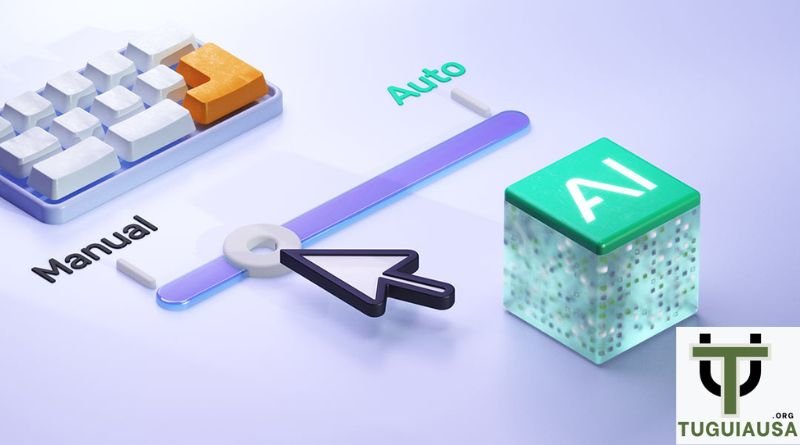Software testing has long been a critical component of the software development lifecycle. With the increasing complexity of applications, traditional manual and automated testing methods are no longer sufficient to meet the growing demand for high-quality software. The integration of Artificial Intelligence (AI) in software testing has revolutionized the process, moving beyond simple automation to intelligent, autonomous testing. AI-powered testing solutions not only enhance efficiency but also improve accuracy and reduce human intervention. In this article, we will explore the evolution of AI in software testing, its benefits, challenges, and future potential.
The Evolution of Software Testing: From Manual to AI-driven Testing
Initially, software testing was entirely manual, requiring testers to execute test cases step by step. Although effective, manual testing was time-consuming and prone to human errors. To overcome these limitations, automation testing emerged, allowing scripts to execute predefined test cases without human intervention. However, traditional automation still relied heavily on human input for test script creation and maintenance.
AI has taken software testing to the next level by introducing self-learning algorithms and intelligent decision-making. AI-powered tools analyze large datasets, predict potential issues, and even generate and optimize test cases automatically. This transition from automation to autonomous testing represents a paradigm shift in the software development industry.
Benefits of AI in Software Testing
The integration of AI in software testing brings numerous advantages that significantly enhance the quality, efficiency, and reliability of software applications. Some key benefits include:
1. Enhanced Test Automation
AI-driven test automation eliminates the need for extensive scripting by learning from past test executions. AI algorithms identify patterns, generate test scripts dynamically, and adapt to application changes, reducing maintenance efforts.
2. Improved Test Coverage
AI enables comprehensive test coverage by analyzing vast amounts of data and identifying potential test scenarios that might be overlooked in manual or traditional automated testing. This ensures that edge cases and rare scenarios are adequately tested.
3. Faster Defect Detection and Resolution
AI can quickly identify defects by analyzing log files, system performance, and user behavior patterns. It helps in predicting failure points and suggests solutions, leading to faster bug detection and resolution.
4. Self-Healing Test Scripts
One of the major challenges in traditional test automation is maintaining scripts when applications undergo frequent UI or functionality changes. AI-powered testing tools can detect changes in the application and automatically update test scripts, making them resilient to modifications.
5. Predictive Analytics for Better Decision-Making
AI leverages predictive analytics to anticipate potential failures before they occur. By analyzing historical data, AI can provide insights into application performance trends and help teams proactively address potential issues.
6. Reduced Costs and Time-to-Market
AI-driven testing reduces the need for extensive manual testing efforts, thereby cutting down costs. Faster defect detection and resolution also contribute to shorter development cycles, enabling businesses to release software more quickly.
Challenges of AI in Software Testing
While AI offers significant advantages, its implementation in software testing also presents certain challenges that organizations need to address:
1. Initial Implementation Complexity
Integrating AI into existing testing frameworks requires expertise and significant effort. Organizations must invest in AI training and infrastructure to fully leverage its benefits.
2. Data Dependency and Quality
AI models rely on high-quality data for training. Poor or insufficient data can lead to inaccurate predictions and unreliable test outcomes. Ensuring clean, diverse, and well-labeled data is crucial for effective AI-driven testing.
3. Lack of Human Expertise
AI can automate and optimize testing processes, but it still requires human expertise to validate test results and handle complex test scenarios that demand human judgment and creativity.
4. Ethical and Security Concerns
AI-driven testing tools need access to large amounts of data, raising concerns about data privacy and security. Organizations must ensure compliance with regulatory standards to protect sensitive information.
5. Tool Selection and Integration
Choosing the right AI-powered testing tool that aligns with the organization’s requirements is essential. Additionally, integrating AI-based tools with existing software development workflows can be challenging.
The Future of AI in Software Testing
AI in software testing is continuously evolving, and its future looks promising. Some key trends that will shape the future of AI-driven testing include:
1. Hyperautomation in Testing
Hyperautomation, which combines AI, machine learning, and robotic process automation (RPA), will further streamline testing processes. AI-driven bots will be capable of performing end-to-end testing with minimal human intervention.
2. Autonomous Testing with AI Agents
AI agents will play a crucial role in autonomous testing, where intelligent bots will execute, analyze, and optimize test cases without human input. This will lead to self-sufficient testing environments.
3. AI-Powered Code Analysis and Debugging
Future AI-driven testing tools will not only execute test cases but also analyze code for vulnerabilities and suggest fixes. AI-powered debugging will significantly reduce the time spent on resolving defects.
4. Continuous and Shift-Left Testing
AI will enhance continuous testing by integrating testing earlier in the development cycle (Shift-Left Testing). AI algorithms will predict defects in the early stages, reducing rework and improving software quality.
5. Natural Language Processing (NLP) for Test Case Generation
With advancements in NLP, AI will enable testers to create test cases using natural language descriptions. This will simplify test creation and make it accessible to non-technical stakeholders.
Conclusion
AI in software testing is transforming the way software is developed, tested, and deployed. Moving beyond traditional automation, AI-driven testing solutions offer intelligent and autonomous capabilities that enhance efficiency, accuracy, and test coverage. Despite challenges such as implementation complexity and data dependency, the benefits of AI in testing far outweigh its limitations. As AI continues to evolve, organizations must embrace AI-powered testing to stay competitive in the fast-paced digital landscape. The future of software testing lies in intelligent, autonomous systems that ensure faster, more reliable, and higher-quality software delivery.
May Also Read: tuguiausa

